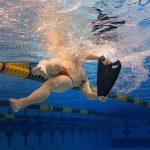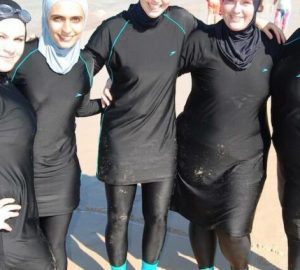We need to change attitudes to swimming outside
The other day I was looking back at a Guardian article about open water swimming from last year (Different strokes: open-water swimming takes the UK by storm by Sandra Laville published on 18 August). I scrolled down to the comments section where, among the posts generally supportive of the article and open water swimming, I discovered the following:
- “You will freeze in a lake. And it’s not safe to go swimming by yourself.”
- “This is a very dangerous article. Water is extremely dangerous. Many people drown by swimming wild. Two unfortunate kids recently in the Norfolk Broads.”
- “For as long as I can remember, people have been told not to do this because it is incredibly dangerous particularly where you don’t know the currents or what’s under the surface. It’s quite irresponsible for the Guardian to be promoting this stupidity as a thing.”
- “It’s a great way to get a dose of the shits.”
- “And this will likely lead to an increase in open water drownings.”
As open water swimmers, we’re already converted to the notion that actually it’s OK to swim outside provided you take sensible precautions. We know it’s not totally risk free (what is?) but we do our best to manage those risks.
Swimming in the UK has suffered a marked decline in participation over the past few years. Open water swimming is one of the bright spots. People are attracted to the fun, adventure and challenge of it. It’s also very social and ‘shareable’ through social media. As such, open water swimming could be part of the solution to reversing the decline in overall swimming participation, which would be a good thing for many reasons. However, at present, the increasing numbers of open water swimmers are not sufficient to compensate for the decline elsewhere.
If open water swimming is to become more popular, which we’d love to see, it has to be normalised. Swimming in lakes and rivers shouldn’t be seen as dangerous, eccentric or hardcore. We (i.e. the British public – not just those of us already converted) should be out there more often, not less, and parents should take their children swimming outdoors so they experience what it’s like being in cooler water.
The German approach: “Swim at your own risk”
The British summer will arrive shortly and there’s a small chance of some warm weather. If that happens, it will inevitably tempt people to swim outdoors and almost certainly, and tragically, there will be some who get into difficulties. This will lead to hysterical press coverage about the dangers of open water swimming and make land owners even more anxious to keep people out of the water.
In our opinion this is the wrong response. What we need is more access to open water and more families taking their children swimming outside so they know how to stay safe before they become teenagers and go swimming on their own. This will only happen if we celebrate and demystify open water swimming.
The people writing the comments listed above will be hard to convince. Some of them will never be persuaded. We’ve been telling each other for too long that open water is dangerous. A recent article in Worcester News about Gullet Quarry highlights this; you can now be fined up to £500 for swimming there.
In contrast, if you go to Germany or France swimming outside is normal. In Germany local authorities mark swimming places on maps and check the water quality. They cut back the vegetation at the water’s edge to making it easy to get in and out.
The view from the office: an ideal spot for a public inland swimming beach?
From where I sit and write I can see a stretch of the Thames that could be wonderful for family swimming. There’s a grassy field to picnic on and the water is slow moving. It’s used by rowers and pleasure boats but a safe swimming area could easily be roped off and marked out without impacting other river traffic, and steps could be built onto the bank for easy access. Yes, there are concerns about water quality, but if more people swim, pressure on the Environment Agency and the Water Companies would increase to do more to keep the river cleaner. But can you imagine the local council doing anything to encourage open water swimming? I suspect the councillors would be horrified by the idea because we’ve convinced ourselves as a nation that the only safe place to swim is a heated pool.
There must hundreds of potential swimming spots like this around the UK that are currently unused. Some will be barricaded and blocked off with signs warning against swimming, which only adds to the negative perceptions. We have a vision of people swimming freely while staying safe and taking responsibility for their own well-being. This can only happen with a change in attitudes to swimming outside, which is where those of us who already do it can make a difference. Whenever we get the opportunity we should promote safe and sensible swimming outside. We need to address people’s genuine concerns with logic, evidence and reason. Some will never be convinced and we have to accept that but we do have the power to change attitudes. It will take time, but it has to be worth it.
—————————–
To read the Guardian article see the link below. Unfortunately, comments are now closed.
And the link to the article about Gullet Quarry is here.
http://www.worcesternews.co.uk/news/14451885.Warning___Don_t_swim_in_death_quarry_/






